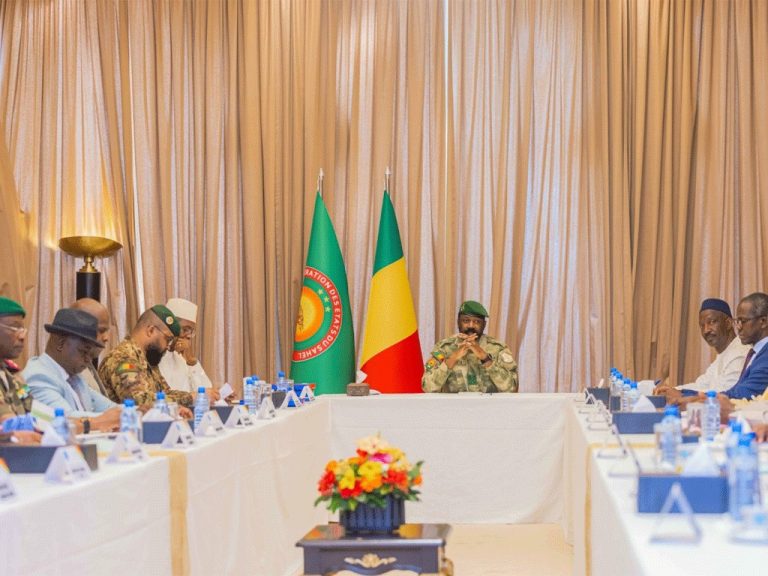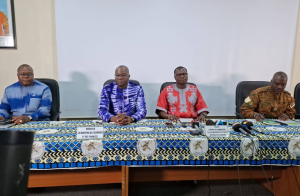Mali/ Assimi Goïta unveils “Mali Kura” vision 2063 Development Plan

General Assimi Goïta convened top government officials today to present the groundbreaking “Mali Kura ɲɛtaasira ka bɛn san 2063 ma” (New Mali Roadmap to 2063), a comprehensive 40-year development strategy aimed at transforming Mali into a sovereign, stable and resilient nation.
This visionary blueprint, built on principles of sustainable growth and inclusivity, seeks to fundamentally reshape Mali’s economic and social landscape through active citizen participation and institutional commitment.
The meticulously designed plan unfolds across four implementation phases, anchored by eleven transformative projects targeting key sectors of Malian society.
Its most ambitious economic target; achieving sustained 10% GDP growth between 2033-2063; reflects the government’s determination to break development barriers.
President Goïta emphasized that realizing this vision requires unwavering commitment from Mali’s highest authorities, noting “This isn’t just government policy it’s a national covenant with future generations.”
Breaking from conventional development models, “Mali Kura” redefines citizenship, positioning every Malian as an active change agent rather than passive beneficiary.
The plan mandates direct involvement from all societal sectors; women, youth, traditional leaders, professional organizations and local governments – in its execution.
Two new oversight bodies will ensure coordinated implementation: A Presidential Development Committee and a Technical Committee under the Ministry of Economy and Finance.
At the plan’s core lies a strategic emphasis on national sovereignty across security, energy and technology sectors.
Leveraging Mali’s demographic dividend and improving investment climate, the vision aims to position the country as a regional model of resilient, inclusive development.
“Our collective strength and unity will determine whether 2063 finds Mali as Africa’s newest success story,” President Goïta stated, framing the plan as both an economic strategy and national mobilization effort.
The launch comes as Mali navigates complex geopolitical challenges, with the government betting that this long-term, citizen-centered approach can deliver structural transformation where previous initiatives fell short.
Implementation begins immediately, with Phase 1 (2025-2033) focusing on institutional strengthening and priority infrastructure projects.
Neil CAMARA






